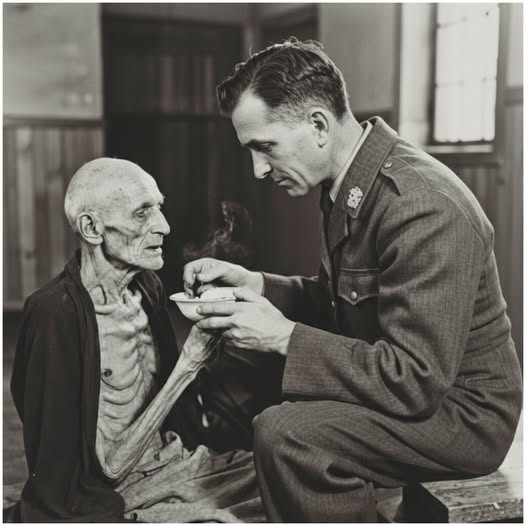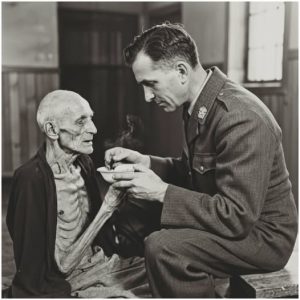A Moment of Humanity Amidst the Darkness

In April 1945, when U.S. troops liberated the Dachau concentration camp, they entered a scene of unimaginable suffering. The air was thick with despair, and the prisoners—starved, broken, and defeated—were barely clinging to life. Among the survivors was one man so frail and weak that he couldn’t even lift a spoon to his lips. The devastation of his condition was a stark reminder of the horrors he had endured.

In this moment of profound darkness, an American soldier approached the man, kneeling beside him with the gentleness of a caregiver. He offered spoonfuls of broth to the man’s parched lips, whispering softly, “Don’t give up. I’ll help you eat.”

For the prisoner, this simple act of compassion was more than just nourishment—it was the first time in years that he had been treated as a person, as a human being, and not just a number. In that brief moment, he was seen. The soldier, though a stranger, became a brother—a fellow human, reaching across the depths of suffering with kindness.

The survivors of Dachau carried memories like these with them long after the war ended. While liberation brought freedom from oppression, it was the quiet moments of compassion—like a soldier’s gentle hand offering food—that provided the healing balm for their broken spirits. The smallest gestures of care, in the face of overwhelming cruelty, held as much significance as the physical act of liberation itself.

This story serves as a poignant reminder that history is not only shaped by grand victories or political declarations but also by the small, often unnoticed moments of humanity. In the darkest of times, the choice to show kindness, to lift someone from despair, is what truly defines the strength of the human spirit.












